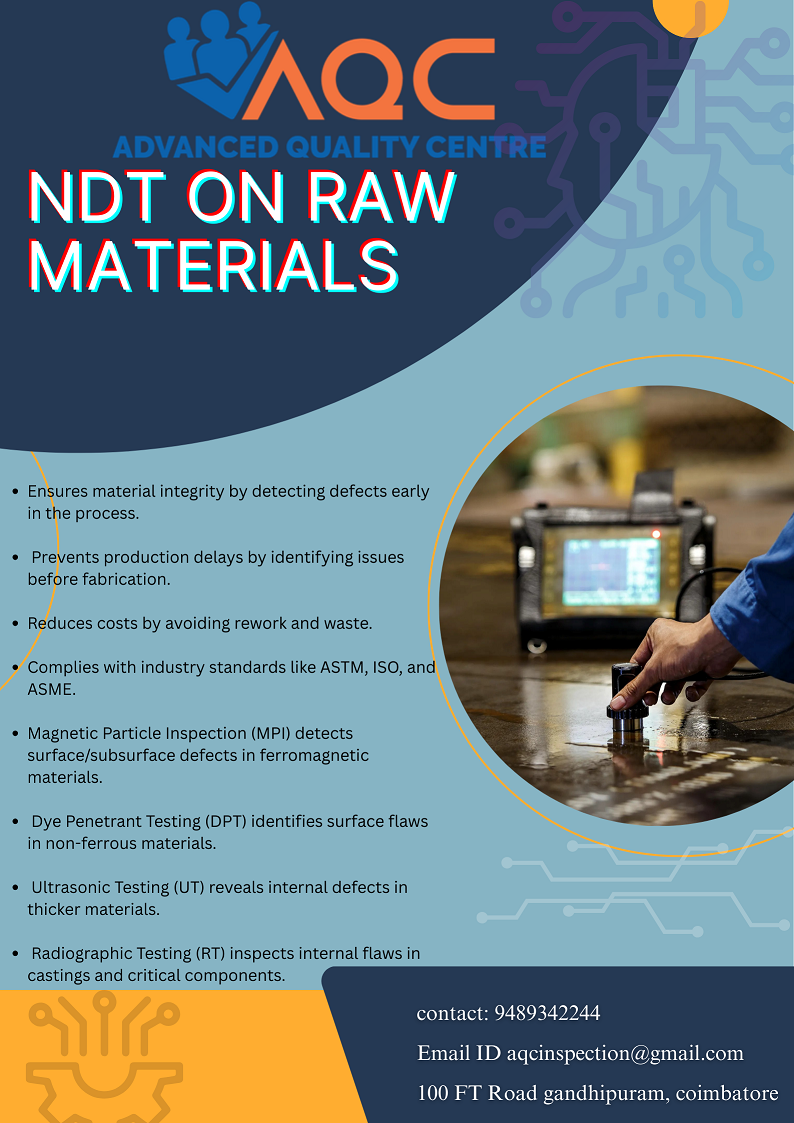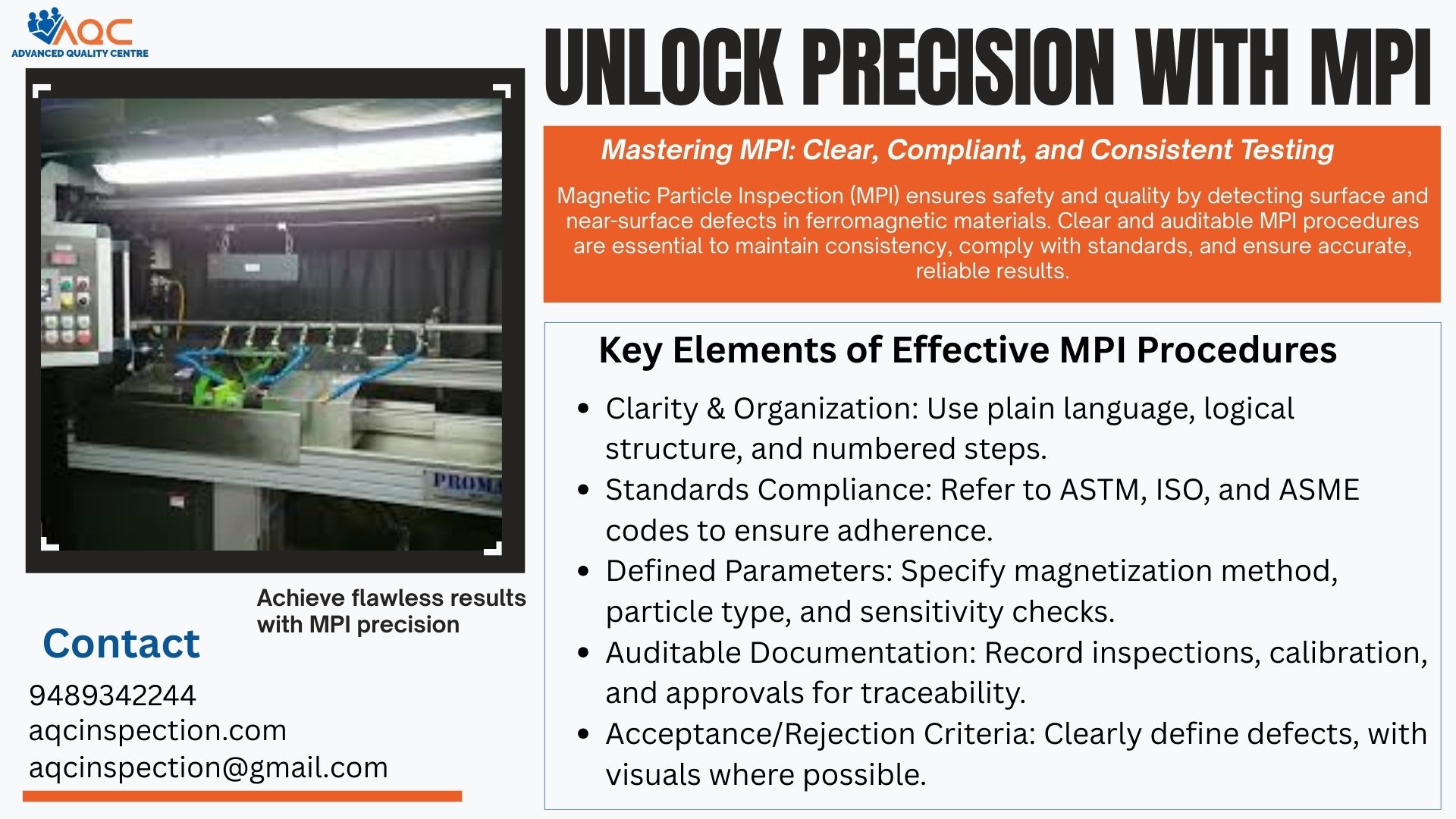Non-Destructive Testing (NDT) of Raw Materials
In manufacturing and engineering, everything begins with raw materials. They’re the foundation on which product quality is built. If there’s a flaw in the material right from the start, it can affect the entire product — compromising safety, performance, and durability.
That’s why Non-Destructive Testing (NDT) at the raw material stage is so important.
At AQC – Advanced Quality Centre, we believe that quality starts even before production begins. With our advanced NDT services, we help companies lay a solid foundation by making sure their raw materials are sound and reliable.
What is NDT on Raw Materials?
NDT stands for Non-Destructive Testing — a set of methods used to inspect materials without causing any damage. When we test raw materials like metal bars, billets, castings, or forgings, we’re looking for things like:
-
Cracks (on the surface or hidden below)
-
Foreign materials or inclusions
-
Internal voids or porosity
-
Structural inconsistencies or segregation
In simple terms, NDT makes sure only high-quality materials move forward into production.
Why It Matters – The Value of Non-Destructive Testing (NDT) of Raw Materials
-
Catch Problems Early
Spotting defects before production starts saves time, money, and prevents waste. -
Improve Safety and Reliability
Strong, tested materials reduce the risk of product failures later on. -
Save Costs Down the Line
Avoid costly rework, delays, or warranty claims by starting with verified materials. -
Meet Industry Standards
Many industries require raw materials to pass NDT before use — and we help you stay compliant. -
Track Quality Over Time
Our NDT results can be integrated with your quality management systems for full traceability.
Our NDT Methods at AQC
We use a range of industry-standard NDT techniques, each chosen based on your material type and requirements:
-
Ultrasonic Testing (UT) – Great for spotting internal flaws in bars, billets, and large castings.
-
Magnetic Particle Inspection (MPI) – Excellent for surface defects in ferromagnetic materials.
-
Radiographic Testing (RT) – Uses X-rays or gamma rays for deep internal inspection.
-
Dye Penetrant Testing (DPT) – Ideal for detecting fine cracks on non-porous surfaces.
-
Visual Testing (VT) – The first line of defense, enhanced with tools like magnifiers or video scopes.
Industries We Serve
Our raw material NDT services support critical sectors such as:
-
Aerospace & Defense
-
Automotive
-
Oil & Gas
-
Power Generation
-
Heavy Engineering
-
Foundries & Forging
In each of these fields, material integrity isn’t optional — it’s essential.
Why Choose AQC?
-
ISO-compliant practices
-
Certified, experienced NDT professionals
-
State-of-the-art equipment
-
Tailored testing protocols
-
Fast, detailed reporting
At AQC, our goal is simple:
Deliver confidence through quality assurance.
Whether you’re a small shop or a large industrial firm, our raw material NDT services help you build better, safer, and more reliable products — right from the start.
Also Learn
How to choose appropriate NDT process ensuring quality and realblity?




